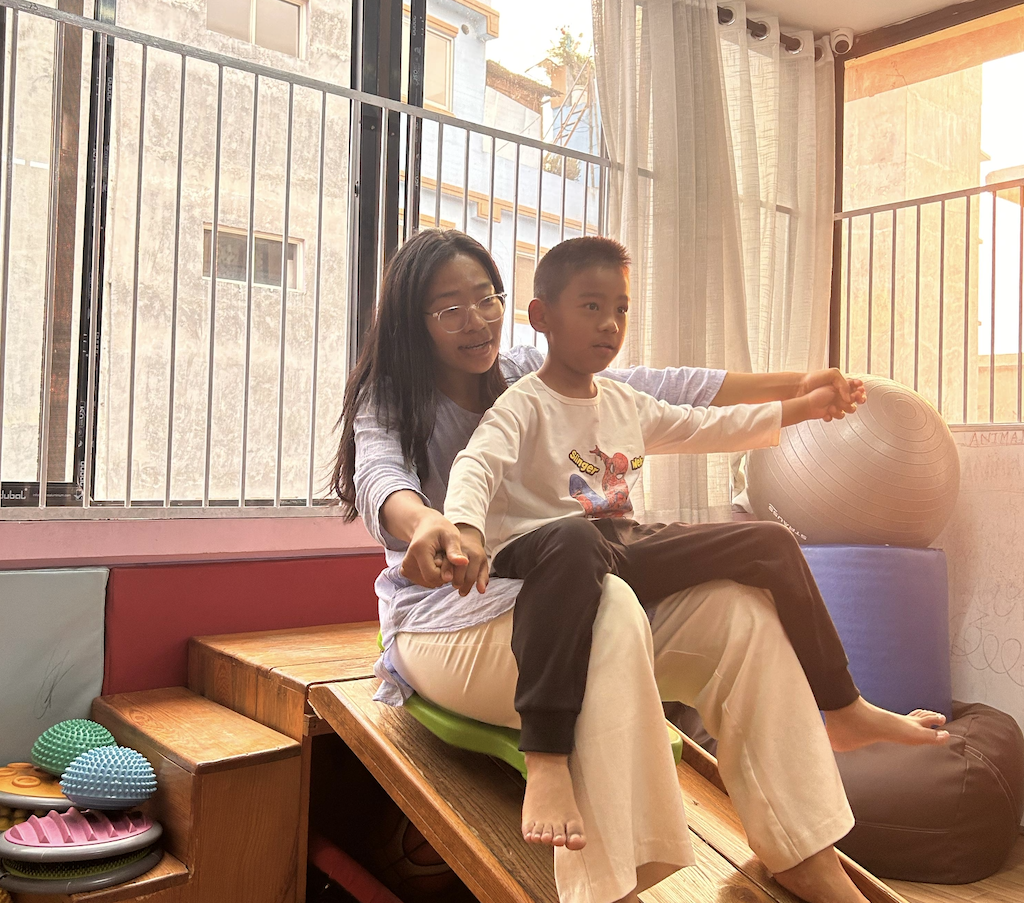Italy has Roses but Holland has Tulips
This piece reimagines autism through the lens of spring’s awakening, inviting us to celebrate the diverse ways children bloom. It challenges the typical narrative of autism as something to be fixed, instead urging us to appreciate the unique beauty, poten

I clock in to work at 8. The clinic door swings open, and in a rush tiny feet, curious eyes, and the familiar symphony of giggles, echolalia, and joyful flapping hands. My morning begins with embraces—hugs, high-fives, and the silent language of love that every child here understands in their own way.
For me, they are just children - not labels, not disorders. Just children. Time has been my greatest teacher, reinforcing the truth that their existence is not a deviation from “normal” but simply a different rhythm—like a waltz instead of a march, a spring breeze instead of a summer blaze.
And you know who they are? They are all autistic. But they are children!
Yet, my heart aches as I sit across from parents who carry stories of exclusion, of battles fought in schools, of whispered judgments at playgrounds, of the quiet mourning of an expected path that never came to be.
When a family dreams of having a child, it is often like planning an exciting trip to a long-awaited destination. They imagine the milestones, the birthdays, the school plays, the friendships, the effortless conversations. Then the diagnosis arrives, and suddenly, the itinerary changes.
Emily Perl Kingsley, in her timeless essay Welcome to Holland, describes this reality poignantly. Parents expecting Italy find themselves in Holland—a different destination, unfamiliar, unexpected. But Holland has windmills. It has tulips. It has its own breathtaking beauty.
And what is spring, if not a testament to change?
Spring does not mourn the winter—it embraces the thaw, the budding leaves, the unexpected blossoms that sprout from once-frozen ground. It is a season of fresh beginnings, a time when the world shakes off its preconceptions and welcomes the extraordinary. Autism, too, is an awakening—an invitation to see the world through a lens of wonder, to listen without demanding words, to cherish the details others might overlook.
A Different Kind of Bloom
If you have ever watched a flower bloom, you know that no two petals unfold in exactly the same way. Some bloom early, stretching toward the sun as soon as spring whispers its arrival. Others take their time, unfurling slowly, savoring each moment before revealing their full brilliance. And some, like the rarest orchids, blossom in ways that defy expectation—stunning, intricate, unique.
Autistic children are like these rare and beautiful blooms. Their growth does not follow a predetermined timeline, but that does not make it any less extraordinary. Where one child may speak fluently, another may communicate through gestures, expressions, or a device. Where one may find joy in imaginative storytelling, another may find the same joy in the predictable pattern of numbers or the comforting repetition of a song. Their world is not limited—it is vast, intricate, and deeply meaningful.
But too often, society sees only the differences, not the beauty. It labels, compares, it measures growth against timelines that were never meant to be universal. And in doing so, it risks missing the splendor of the tulips while longing for the roses.
Reframing the Narrative
For too long, autism has been framed as something to fix, to manage, to mourn. But what if we saw it as something to understand, to embrace, to celebrate?
The flapping of hands is not meaningless; it is excitement embodied.
The need for routine is not rigidity; it is a deep craving for security in a world that often feels overwhelming.
The quiet moments, the deep interests, the seemingly small victories—they are as vibrant as the first blooms of April.
Autistic individuals bring perspectives that challenge our conventional ways of thinking. They remind us that communication extends beyond words, that joy can be found in the details, that love is expressed in infinite forms. They awaken us to a world that is not broken but beautifully diverse.
This April, as the world celebrates Autism Awareness and Acceptance Month, let us do more than just acknowledge autism. Let us awaken to its beauty. Let us see autistic individuals not through the lens of limitations, but through the lens of their potential, their brilliance, and their springtime bloom.
Because if we only ever seek Italy, we might miss the tulips entirely.


